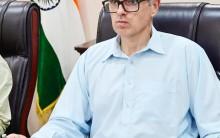A new study conducted by researchers at the University of Wuhan has revealed that coronavirus can remain airborne for hours in crowded spaces and toilets. The research was conducted to investigate how the virus will stay alive in non-ventilated spaces, and the new results suggest that medical experts have underestimated the capability of COVID-19.
Details of the new research
The new research report published in the journal Nature revealed that coronavirus could remain in areas with poor ventilation for some time. During the study, researchers took samples of 30 sites across Wuhan where coronavirus first broke out.

Test results revealed that the presence of coronavirus in public areas outside hospitals and in isolation wards were pretty low. However, elevated virus presence was detected in patients' toilets that are not well ventilated. The study report suggested that toilets in hospitals might have played a crucial role in increasing the infection rate.
"Airborne SARS-CoV-2 may come from either the patient's breath or from the virus-laden aerosol from a patient's feces or urine during use," says the study report, Telegraph reports.
The research report also urged the general public to practice regular use of masks to reduce the chance of airborne transmission.
The vitality of social distancing
In the initial days of the coronavirus outbreak, medical experts have urged people to maintain a safe distance of 2 meters while interacting with others. However, a study conducted by an expert at the Massachusetts Institute of Technology (MIT) has warned that coronavirus could have a farther reach than previous assumptions, especially when a person is coughing and sneezing.
Lydia Bourouiba, an associate professor at MIT shockingly suggested that COVID-19 could reach a distance of up to 8 meters when a patient is coughing and sneezing.
"There's an urgency in revising the guidelines currently being given by the WHO and the CDC on the needs for protective equipment, particularly for the frontline health care workers," Bourouiba told USA Today.












